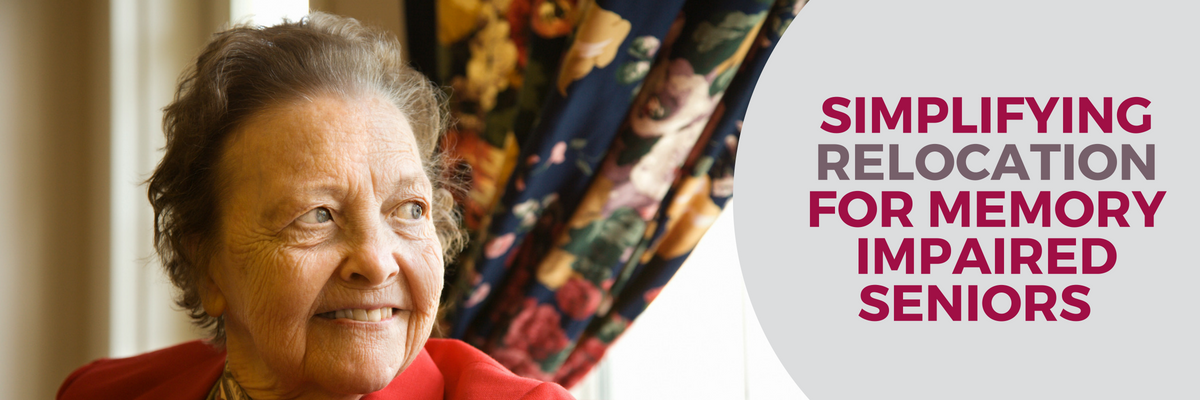
Many families and friends face the challenge of relocating a senior loved one impacted by memory impairment issues like Alzheimer’s or Dementia. This process can be a challenge for the senior loved one often feeling confused or finding it difficult to remember happenings from one moment to the next. For supportive family and friends assuring your loved one of safety, security, and affection is compounded with the tedious process of organizing the relocation itself. We have 3 tips to help you simplify this process.
Communicate with Care
Using empathy is the first step to opening yourself to what your loved one is trying to communicate without taking offense to a forgotten name or detail. Take the time to create a calm and quiet environment for conversation, especially important conversations. Making sure distractions are at a minimum to help the senior focus on their conversation with you. Being attentive while keeping interruptions to a minimum will give comfort and build trust. Seemingly the most important part of communicating with care is patience and calm.
Listen to Concerns
Remember to take the conversation one moment at a time through simple conversation. Allow time to process the conversation without rushing the moment to reduce anxiety, uncertainty, and confusion for someone who has memory impairment. Your conversations may be limited in understanding and this can often be a source of frustration for both you and the senior. Small efforts like maintaining a calming tone and body language will keep the conversation healthy. Our relocation experts remind readers, it's important to remember that moving can be very stressful for a senior, especially in situations where they’re seeing their lifetime of collectibles and possessions going away for good. It can make them feel like they’re losing their entire lives, stop and listen to your loved ones when they speak up about how they’re feeling.
Give Seniors a Sense of Control
A large part of creating a secure and safe environment is helping your senior loved one grasp a sense of control. People often experience stress when they feel things are out of control. Caregivers can lessen the stress of transitioning by reinstating a sense of order and control to the events their loved ones find stressful. Offering choices helps the senior maintain his/her sense of self in the midst of chaos. It’s important to understand that when we remove someone’s ability to make decisions on his or her own behalf, we also remove an essential practice that would otherwise help a senior maintain a sense of control over unfamiliar situations.
________________________________________________________________________________________________________________________________________________
Sources
http://www.caringtransitions.com/blog/ID/732/Tips-for-Transitioning-Senior-with-Cognitive-Disorders
http://www.caringtransitions.com/blog/ID/1148291/Communicating-Lovingly-with-Seniors-Suffering-from-Memory-Impairment
http://www.caringtransitions.com/blog/ID/769278/How-to-Downsize-Someone-with-Memory-Impairment